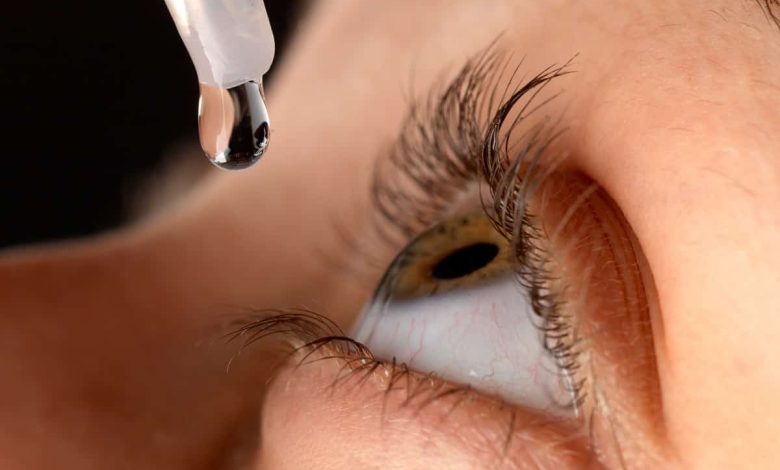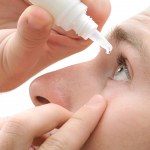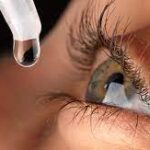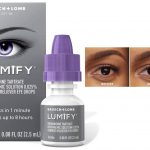Systemic Side Effects Of Steroid Eye Drops

Steroid eye drops are a type of medication used to treat a variety of eye conditions, including inflammation, allergies, and certain infections. They contain corticosteroids, which are a type of hormone that can reduce inflammation and swelling. While steroid eye drops are generally safe and effective, they can have side effects, including systemic side effects.
Systemic side effects are those that affect the body as a whole, rather than just the area where the medication is applied. The systemic side effects of steroid eye drops can be significant, and it’s important to be aware of them when using these medications. In this article, we will discuss in detail the potential systemic side effects of steroid eye drops.
Increased Risk of Infection
One of the potential systemic side effects of steroid eye drops is an increased risk of infection. Steroid eye drops can suppress the immune system, which can make it harder for the body to fight off infections. This can lead to an increased risk of infections such as conjunctivitis (pink eye), keratitis (inflammation of the cornea), or even more serious infections such as endophthalmitis (inflammation of the interior of the eye).
In addition to increasing the risk of eye infections, steroid eye drops can also increase the risk of other types of infections. For example, people using these drops may be more susceptible to respiratory infections, such as the flu or pneumonia. They may also be more prone to skin infections or urinary tract infections.
High Blood Sugar
Steroid eye drops can also increase blood sugar levels, which can be a significant concern for people with diabetes. Corticosteroids can increase insulin resistance, which means that the body may not be able to use insulin as effectively as it should. This can cause blood sugar levels to rise, which can be dangerous for people with diabetes.
High blood sugar can cause a variety of symptoms, including:
• Increased thirst
• Frequent urination
• Fatigue
• Blurred vision
• Headaches
• Increased hunger
• Slow-healing wounds
If blood sugar levels remain high for a long period of time, it can cause damage to various organs in the body, including the kidneys, nerves, and eyes. This is why it’s important for people with diabetes to monitor their blood sugar levels closely when using steroid eye drops.
Cataracts
Prolonged use of steroid eye drops can increase the risk of cataracts. Cataracts are a condition in which the lens of the eye becomes cloudy, leading to vision problems. While cataracts can occur naturally as people age, prolonged use of steroid eye drops can increase the risk of developing cataracts earlier in life.
Cataracts can cause a variety of symptoms, including:
• Blurry vision
• Sensitivity to light
• Difficulty seeing at night
• Double vision
• Halos around lights
Treatment for cataracts typically involves surgery to remove the cloudy lens and replace it with an artificial one.
Glaucoma
Steroid eye drops can increase intraocular pressure, which can lead to glaucoma. Glaucoma is a condition in which the pressure inside the eye increases, which can damage the optic nerve and lead to vision loss.
Glaucoma can cause a variety of symptoms, including:
• Blurred vision
• Halos around lights
• Eye pain
• Nausea and vomiting
• Tunnel vision
Treatment for glaucoma typically involves the use of eye drops to lower intraocular pressure, but in some cases, surgery may be necessary.
Mood Changes
Steroids can affect mood and cause emotional changes, such as anxiety, depression, or irritability. These mood changes can be particularly pronounced in people who are already prone to mood disorders.
In addition to emotional changes, steroid eye drops can also cause sleep disturbances, such as insomnia or vivid dreams. These side effects can be particularly problematic for people who are already struggling with sleep issues.
Weight Gain
Steroids can cause fluid retention and weight gain. This can be particularly problematic for people who are already overweight or obese. Weight gain can increase the risk of a variety of health problems, including diabetes, heart disease, and joint pain.
Osteoporosis
Prolonged use of steroid eye drops can increase the risk of osteoporosis. Osteoporosis is a condition in which the bones become weak and brittle, increasing the risk of fractures. Steroids can affect the body’s ability to absorb calcium and promote bone growth, which can lead to weakened bones.
Other Systemic Side Effects
In addition to the side effects mentioned above, steroid eye drops can also cause other systemic side effects, including:
• Increased appetite
• Fluid retention
• High blood pressure
• Muscle weakness
• Thin skin
• Easy bruising
• Delayed wound healing
• Increased susceptibility to infections
It’s important to note that not everyone who uses steroid eye drops will experience these side effects. The risk of systemic side effects can depend on a variety of factors, including the dose and duration of use, as well as individual factors such as age, overall health, and other medications being taken.
Reducing the Risk of Systemic Side Effects
While the potential systemic side effects of steroid eye drops can be concerning, there are steps that can be taken to reduce the risk of these side effects. Some strategies that may be helpful include:
• Using the lowest effective dose: Using the lowest possible dose of steroid eye drops can help to minimize the risk of side effects.
• Using for a limited duration: Limiting the duration of use can also help to reduce the risk of side effects. Steroid eye drops should be used for the shortest amount of time necessary to treat the condition.
• Close monitoring: It’s important to have regular eye exams while using steroid eye drops to monitor for potential complications.
• Informing healthcare providers: It’s important to inform healthcare providers of any other medications being taken, as well as any medical conditions that may increase the risk of side effects.
• Lifestyle changes: Making healthy lifestyle changes, such as maintaining a healthy weight, eating a balanced diet, and engaging in regular exercise, can also help to reduce the risk of side effects.
Conclusion
Steroid eye drops are a valuable tool in the treatment of a variety of eye conditions, but they can have significant systemic side effects. These side effects can range from mood changes and weight gain to increased risk of infection and glaucoma. It’s important to use these drops only as directed by a healthcare provider and to be aware of the potential risks. By taking steps to reduce the risk of side effects and closely monitoring for complications, it’s possible to use steroid eye drops safely and effectively.





